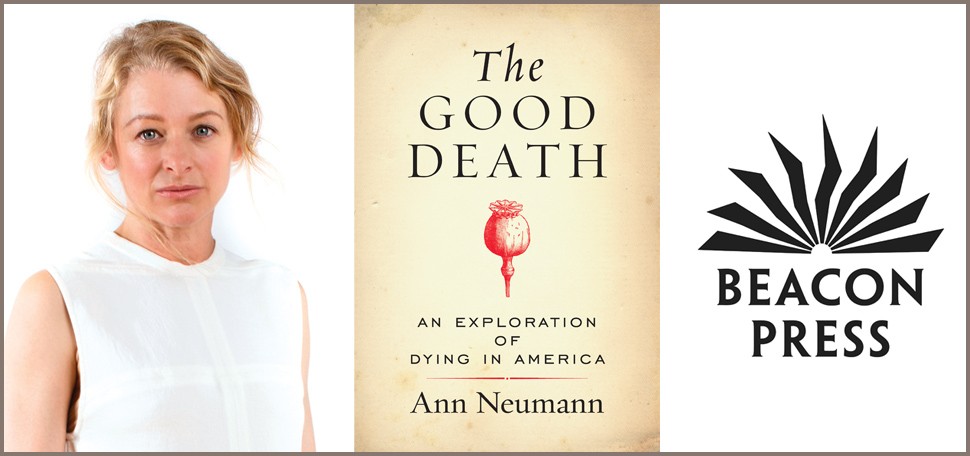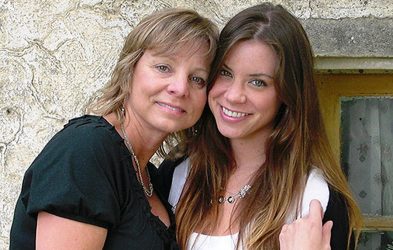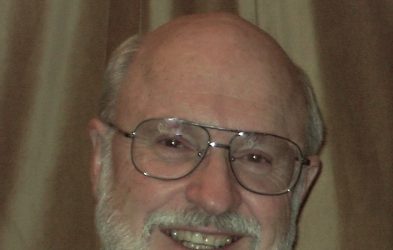By Ann Neumann
Identifying these forces is key to understanding why Americans don’t die the way they want to and to creating a more just and humane way of dying. Roughly mapped, there are three interdependent institutions that have some form of jurisdiction over how we die: the medical industry, religion, and the law. Each of these regimes is a highly complex system with its own multitude of cultures and subcultures, histories, and varying proximity to our bodies.
How the Medical Industry Controls Your End-of-Life Options
What I have so far called medicine or the medical industry, for instance, is made up of doctors, nurses, bioethicists, and health-care providers, but also medical schools, associations, insurance providers, device manufacturers, hospital directors, and pharmaceutical companies. Medicine also has an ethics, or moral principles, that govern both practice and theory. All these moving parts are separate but connected, couched within a history that is, at least regarding modern medicine, sixty to seventy years old. Too, there are myriad power structures within modern medicine, good and bad. A research team has the power to create new drugs that may slow the effects of Alzheimer’s. A bioethicist may develop a way to think about access to scarce medicines. But, too, a pharmaceutical company may challenge the production of a generic drug that rivals its own more expensive product. Some of these powers are hard, with direct access or influence on us, like a hospital director’s decision to institute a hand-washing policy for employees, or soft, with influential sway over decision making, like a new report that shows interns perform better when they work shorter shifts. Some are intentional, like a company’s decision to lower a drug’s price, or unintentional, like a shortage of geriatric nurses in the Southwest.
How Religion Influences How You Die
Like modern medicine, religion has its own history, subcultures, components (priests, pastors, laypersons, employees of religious organizations, church charities, theologians) and power structures. Denominational theologies vary greatly, and within them, there is dissent and change. Nontheological ideologies—abortion is un-Christian or Catholic hospitals provide more charity, for instance—dynamically imbue our understanding of behavior and moral values, whether true or false. St. Patrick’s Hospital, across the street from the office of Mark Connell, the lawyer who presented the case to legalize aid in dying before the Montana Supreme Court, may theoretically be subject to the governance of the local Catholic bishop, but that doesn’t mean that all who work there oppose tubal ligation. The influence of Catholic theology on, say, a pharmacist who works in a Catholic hospital and is asked to fill a birth control prescription, depends on his own religious conscience, a patient’s willingness to report being turned away, the oversight of the pharmacist’s boss, his ability to find a job elsewhere, or the laws in his state that decide if he can deny prescriptions.
How the Law Impacts the Way You Die
The legal system is shorthand for not only cops on the street but lawyers; judges in district, state, and federal chambers; jails and prisons (wardens, security guards, inmates, contractors); advocacy groups; bail bondsmen; and the set of laws that each of these nodes is charged with upholding. But, too, it comprises the cultures inherent in each of these groups. The discipline of power (as opposed to the good works power can do) is more overt in the legal system because it is meant to react to social values regarding behavior and because it comprises case jurisprudence and state and federal laws that proscribe behavior. Laws, established by court case rulings and lawmakers—under pressure from society, their consciences, or other forces—are meant to punish particular behaviors and to dissuade others from behaving in particular ways.

Ethical and Religious Directives for Catholic Health Care Services
According to the United States Conference of Catholic Bishops (USCCB) website, there are 629 Catholic hospitals in the country, serving one out of every six patients: that’s nineteen million emergency room visits and more than one hundred million outpatient visits each year. Catholic hospitals operate, like all hospitals, according to standard medical procedure, except when that procedure falls outside the Ethical and Religious Directives for Catholic Health Care Services (ERDs), seventy-two guidelines that are approved by the USCCB.
Oversight of hospital compliance was once very casual—local bishops were charged with directing the hospitals in their diocese— but several factors have pitted patients, doctors, staff, and the bishops in a contest for authority and autonomy over the past decade. Increasing mergers between Catholic and secular hospitals, due to economic changes in the field, have rankled local communities when reproductive services are discontinued. The Catholic Church’s pronounced role in health-care legislation, including its efforts to avoid the contraception mandate in the Affordable Care Act, which would provide full health insurance coverage for employees of Catholic entities, has focused attention on Catholic facilities. Some doctors have lamented the days when ERD prohibitions were quietly ignored in their hospitals. But attention from both opponents of the ERDs and bishops has now changed the climate drastically. Reproductive rights advocates have increasingly challenged hospitals’ denial of patient-doctor privacy regarding abortion and contraception, pointing out that while Catholic hospitals maintain their right to institutional conscience, they deny those rights to patients in their communities who aren’t Catholic or are Catholic but don’t agree with the ERDs.
Catholic hospitals are rightly known for their quality. The church has been involved in health-care provision since the beginning of modern medicine. In addition to hospitals, which employ half a million full-time and a quarter-million part-time workers, the church also oversees fifty-six health-care systems (HMOs) and thousands of facilities for children, elders, the disabled, and the ill. The refusal to provide some standard services is compounded by the church’s enforcement of policy that prevents hospital staff from even informing patients of their full medical options or from referring them to facilities where they can receive desired care, which is why it’s impossible to discuss health care in America today without considering the influence that the Catholic Church wields over the industry and the country’s pluralistic population.
[T]he free and informed health care decision of the person or the person’s surrogate is to be followed so long as it does not contradict Catholic principles.
While most of the recent focus on Catholic health care has concerned reproductive services, the church quietly changed the ERDs in 2009 to address the use of artificial nutrition and hydration, specifically, the use of feeding tubes in patients in persistent vegetative states, like Terri Schiavo. In a question-and-answer document published by the Catholic Health Association on November 2009 on its website, changes to ERD #58 are explained: “In March 2004 Pope John Paul II addressed this issue and in August 2007 the Congregation for the Doctrine of the Faith issued a clarifying document on the issue. Therefore the Introduction to Part Five and Directive #58 have been revised in light of these statements.” The pope’s address was given the same month Terri Schiavo died. While the change allows tubes (medically assisted nutrition and hydration, or MANH) to be removed if a patient is terminal or if the tube is an excessive burden, the bishops “insist that the belief that a patient is never likely to regain consciousness is not in itself a sufficient reason for withdrawing MANH.” The document is presumably written for medical staff as a guide to the new change. The tone is calm and reassuring. To the question, “Does the new Directive #58 mean that Catholic health care facilities will not honor a patient’s advance directive?” the answer is a flat no, yet it goes on to explain: “There may be the occasional situation, such as some patients in a persistent vegetative state, when what the patient is requesting through his or her advance directive is not consistent with the moral teaching of the Church. In these few cases, the Catholic health care facility would not be able to comply.” But this is nothing new. Directive #28 already notes that “the free and informed health care decision of the person or the person’s surrogate is to be followed so long as it does not contradict Catholic principles.” And Directive #59 echoes this: “The free and informed judgment made by a competent adult patient concerning the use or withdrawal of life-sustaining procedures should always be respected and normally complied with, unless it is contrary to Catholic moral teaching.”
Adapted excerpt from The Good Death: An Exploration of Dying in America by Ann Neumann (Beacon Press, 2016). Reprinted with permission from Beacon Press.
About the Author
Ann Neumann is a visiting scholar at the Center for Religion and Media at New York University, where she is a contributing editor to the Revealer. Her articles have appeared in the New York Times, Bookforum, The Nation, and Guernica.
This article is an adapted excerpt from Ann’s new book The Good Death: An Exploration of Dying in America (Beacon Press, 2016). Reprinted with permission from Beacon Press.
The article title and subheadings are ours. Currently on a book tour, Ann will visit our very own Portland, Oregon on March 24, where our Executive Director Peg Sandeen will provide an introduction for Ann’s talk and reading.


5 Comments.
Derek Humphry (athiest)
In the 40 years I’ve been interested in this movement, I’ve met many people who call themselves Christians (of various denominations) who believe in the right to choose to die, including assisted dying. The God that they worship — they tell me — is a God of love and tolerance, so they would not be barred from the Kingdom of Heaven if taking their life was justified by intolerable suffering.
Dr Hermon Mihranian
I would be very grateful if I can have a free copy.
Hermon Mihranian
Bem Josef Str 9
1027.Budapest
Hungary
Death with Dignity
Hermon, you’re welcome to contact the publisher and request a free copy from them. Otherwise, in Europe the book is available at http://www.amazon.co.uk/Good-Death-Exploration-Dying-America/dp/0807080624/
Dr Hermon Mihranian
Unfortunately the book is not available in Hungary. A free copy will help spreading the words since I am full supporter. Thanks
C. Zylstra
I am not God and I cannot judge another person’s soul, and neither can you. But there are some things that are wrong, and they always will be, and this is one of them, to take human life. There are times when it becomes necessary — an example when a law enforcement officer must use lethal force to prevent an assailant from murdering someone. There are people who believe they are following Christ when they actually are not. Good people can be deceived into believing that something inherently evil is good — and that is the case with the Death with Dignity Act. Every Christian should know that God created life, and our lives do not entirely belong to ourselves but to Him and to others because others have helped to shape who we are and we are all interdependent upon one another. All a Christian needs to do is look at the Cross and see that Jesus could have saved Himself from His own suffering, but He didn’t. We need to alleviate all unnecessary suffering — but part of life involves pain. It is a part of life and necessary for us to become who we fully are, and to help others to do the same — and that is the redemptive character of suffering that cannot be alleviated. There are effective means to manage pain at the end of life. And it is not morally wrong to decline treatment if that treatment becomes so burdensome that it destroys a person’s quality of life. However, there is a line that is morally crossed when we do something with the intent to end our lives. Those who support the Death with Dignity Act do not understand this, nor do they understand how in time this Law opens the doors for other laws to be passed that can lead to involuntary euthanasia. You might think that would not happen, but it already has, and it does happen — people just don’t talk about it. I have found most Americans are very unconscious concerning what motivates and drives their decisions, and they do not see this. Most Americans don’t see a lot of things. That is why we have so much road rage on our highways and why people are being mass murdered by fellow Americans with guns. You are certainly entitled to your opinion, but taking your life is not justified by intolerable suffering. It was not when I was growing up and it is not now. And it never will be. I did not originate the Commandment, “Thou shalt not kill”. Every Christian knows that Commandment. And to be a follower of Jesus, we must obey that Commandment. He did. Jesus said if we want to follow Him we must do the same. If we do not, then we are not acting as a Christian. I did not say this — Jesus did. And that is all I have to say in this matter.
Comments are closed.